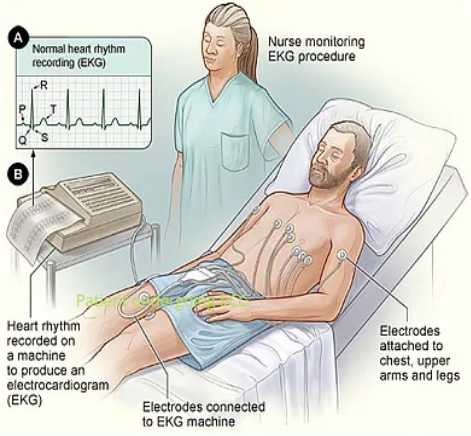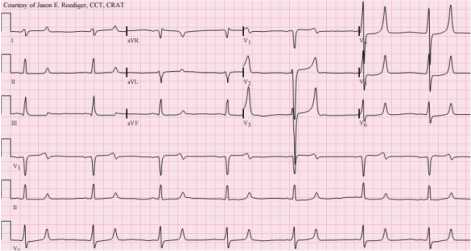An electrocardiogram (EKG or ECG) is a test that checks for problems with the electrical activity of your heart. An EKG translates the heart's electrical activity into line tracings on paper. The spikes and dips in the line tracings are called waves. The heart is a muscular pump made up of four chambers. The two upper chambers are called atrium, and the two lower chambers are called ventricles. A natural electrical system causes the heart muscle to contract and pump blood through the heart to the lungs and the rest of the body.
An electrocardiogram (EKG, ECG) is a test that measures the electrical signals that control heart rhythm. It is called a 12-lead ECG because it examines the electrical activity of the heart from 12 points of view. This is necessary because no single point (or even 2 or 3 points of view) provides a complete picture of what is going on. The test measures how electrical impulses move through the heart muscle as it contracts and relaxes.





